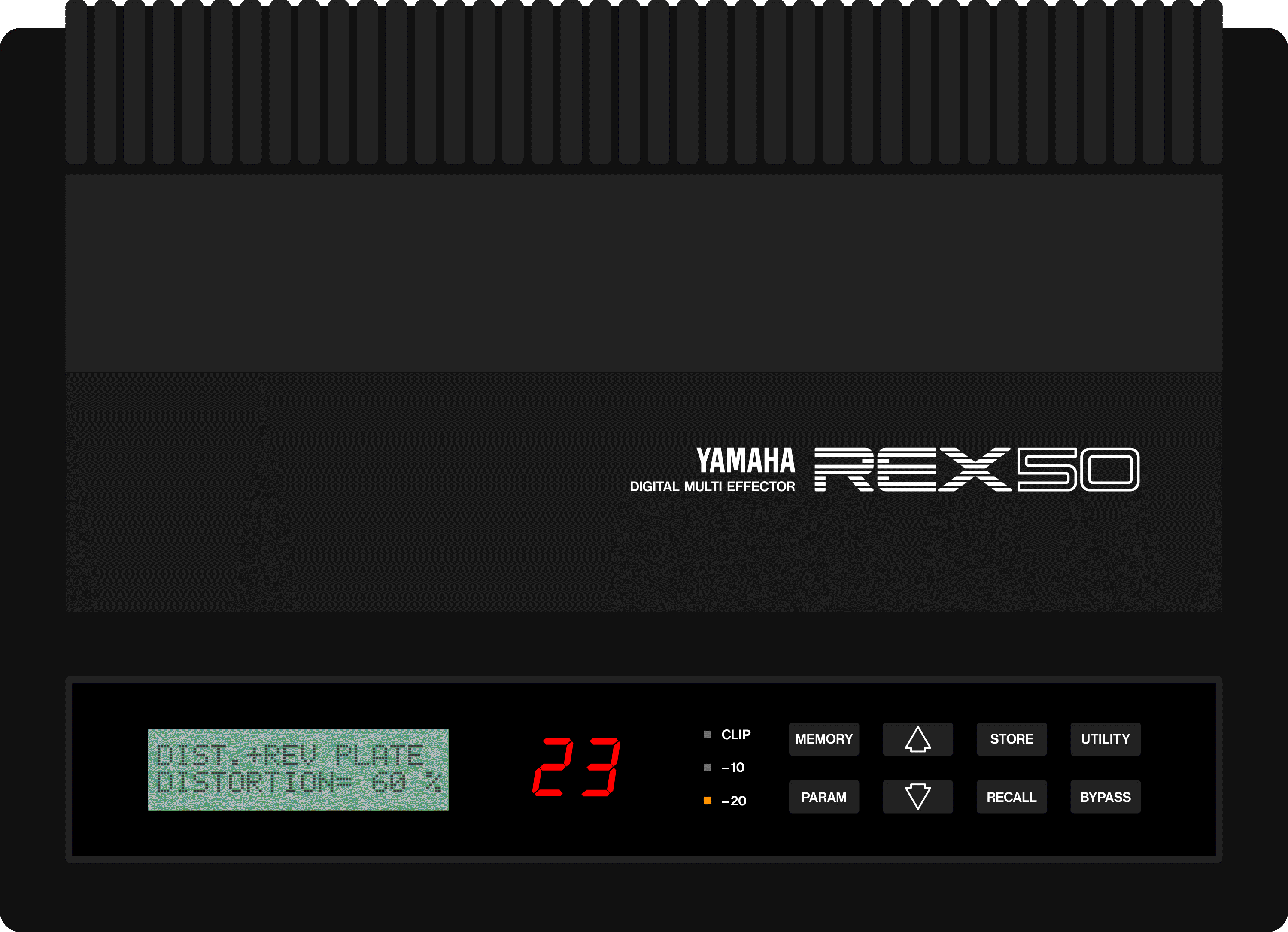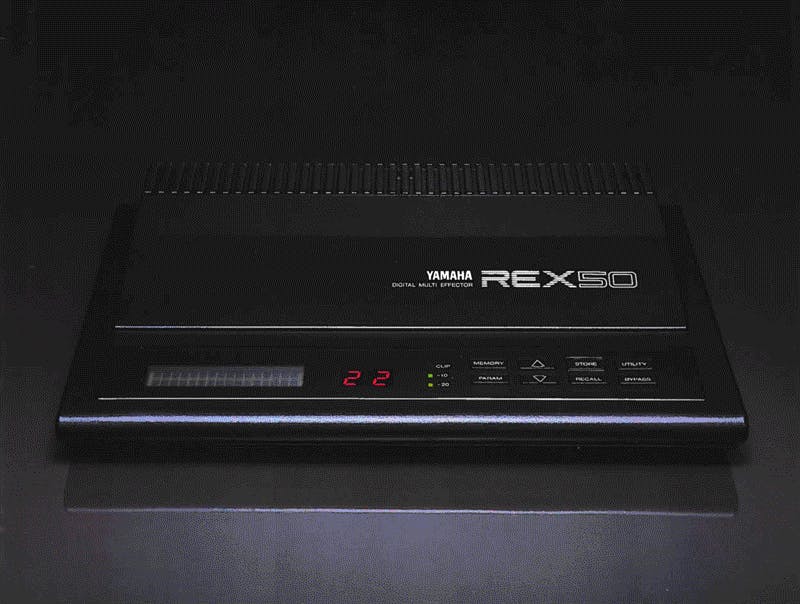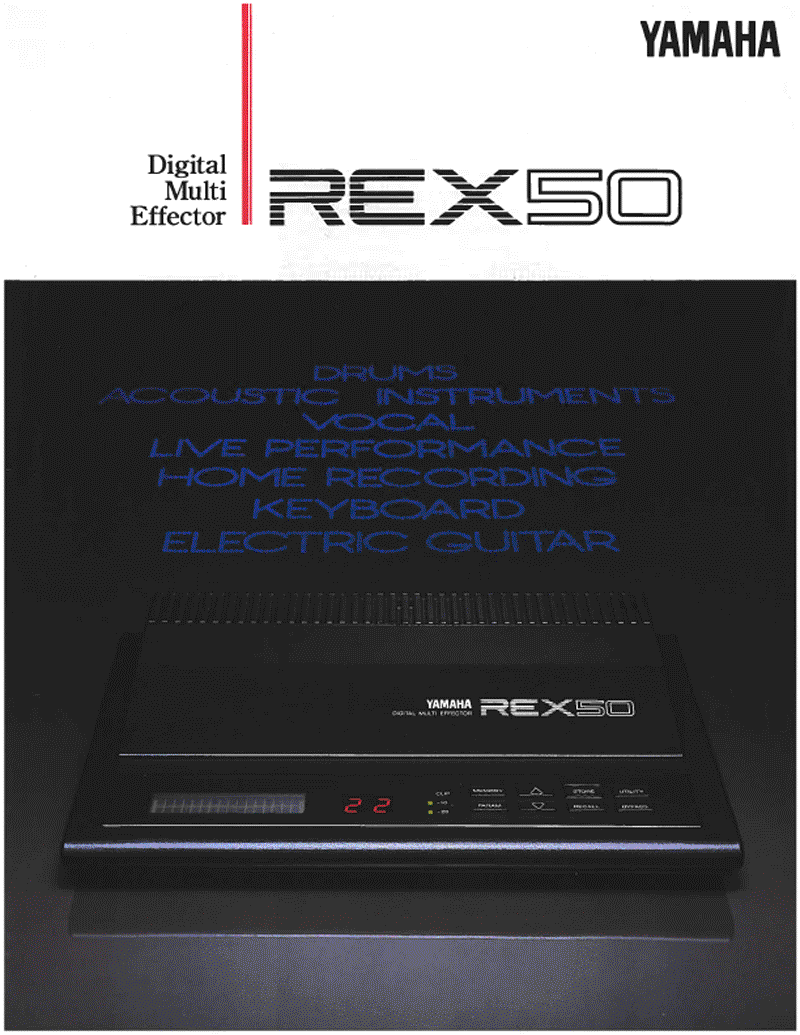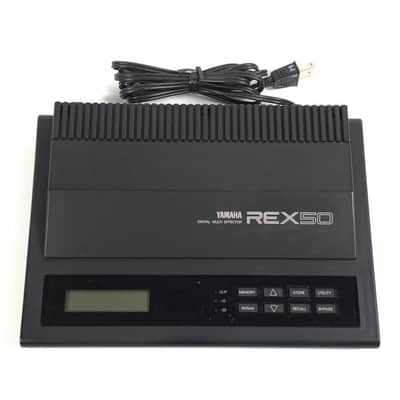1987 (Jun.)
Initially sold for ¥49,800
Budget version of the SPX90 in a table-top form. Music Technology introduced it by writing "The latest signal processor from Yamaha may be aimed primarily at guitarists but the small studio owner might prefer to look at it as an adaptation of the SPX90." In facts, while removing the sampling features found on the SPX90 and the ability to use a remote, the REX50 introduces a stereo input and a few distortion effects.
Even if the amount of controls seems very restricted, only 8 very mushy buttons, programmability is very detailed given it was a very cheap unit. Every effect can be customized, and changes can be saved to memory to be recalled later. Very good delays, usable distortions.
The overall aspect and the fact that is a very basic plastic box built around a PCB is reminiscent of the Sinclair ZX80. Yet it's larger than you'd expect and the weird shape makes it hard to stack it with anything else. Considering the quickly rising prices on the used market of SPX90 racks, the REX50 could be a great alternative.
Features
- Reverb: state-of-the-art digital technology reproduces the acoustic reflections of various environments. Other reverb effects include early reflection, gate reverb, and revers gate.
- Delay and echo: independently programmable right and left channel delay and echo effects with adjustable feedback allow creation of a broad spectrum of delay effects.
- Distortion: an extremely powerful and flexible distortion effect, by itself or with other reverb, delay, and modulation effects – making the REX50 essentially two effects units in one.
- Modulation: the expressive capability of the popular modulation effects (Stereo Flange, Chorus, Stereo Phasing, and Symphonic) are all here as well, with the added flexibility of a wide programming range.
- Gate: a high-performance noise gate with a fully programmable ADR envelope. Extensive triggering functions enable creation of an incredible range of unique sounds.
- Compressor: compression can be used to sustain sounds (such as a guitar), or smooth out the volume extremes of particularly dynamic sounds (such as vocals).






